1. Mechanisms to Prove Accuracy
1.1. Conventionality of presentation is important because it can give readers a recognizable framework to assess and understand what’s being written.
1.2. Citizen journalists need to focus on doing more original reporting rather than working as a rewrite desk in a newsroom.
1.3. When it comes to trust of user-generated media, editing and supervision is necessary.
1.4. Citizen journalists need to do a better job of practicing sound journalism.
2. Internet changing the way how news is reported
2.1. People don't have to go to the store to buy newspaper or magazine because the public can access all of the information they could possibly need in comfort of their own place.
3. Ordinary citizens as news reporter
3.1. Ordinary citizens news reporters on TV or online develops more awareness on news content and mass media literacy because they usually use social networking sites which is very relevant to people now.
4. Definition
4.1. Courtney C. Radsch
4.1.1. "as an alternative and activist form of news gathering and reporting that functions outside mainstream media institutions, often as a response to shortcomings in the professional journalistic field, that uses similar journalistic practices but is driven by different objectives and ideals and relies on alternative sources of legitimacy than traditional or mainstream journalism".
4.2. Jay Rosen
4.2.1. "When the people formerly known as the audience employ the press tools they have in their possession to inform one another."
4.3. Google Dictionary
4.3.1. the collection, dissemination, and analysis of news and information by the general public, especially by means of the Internet.
4.4. Wikipedia
4.4.1. "playing an active role in the process of collecting, reporting, analyzing, and disseminating news and information."
5. Advantages
5.1. Challenging the Media
5.1.1. Although we all wish it could be more objective, the media can be biased, and there are news outlets that promote a particular point of view while excluding others. With citizen journalists working to fact check major news outlets, the media can be held accountable for their reporting or be the subject of a lawsuit if they are caught telling lies. In a way, citizen journalists work for public.
5.2. Being in the Moment
5.2.1. Capturing a crisis or event at the moment it happens is a major advantage of citizen journalism.
5.2.2. One example of this would be people walking down the road in Charlottesville, Virginia, after a recent protest over Confederate statues and related issues when a car crashed into a group of protesters. Some of the people whipped out their phones and captured the entire event.
5.3. Offers Multiple Vantage Points
5.3.1. Citizen journalism began for many reasons, but a major one was to provide a more accurate account of a story, looking at the issue from every angle. When hundreds or even thousands of citizens participate in the collection and reporting of an event, it makes it easier for the true story to emerge (and harder for anybody to slant the story in their favor).
5.3.2. When the movie theater in Aurora, Colorado, was attacked by a gunman, multiple survivors contributed to the story with personal essays and interviews that helped the media convey what really went on in that theater to the rest of the country. All those perspectives, while not always objective, allow for a more engaged version of journalism.
